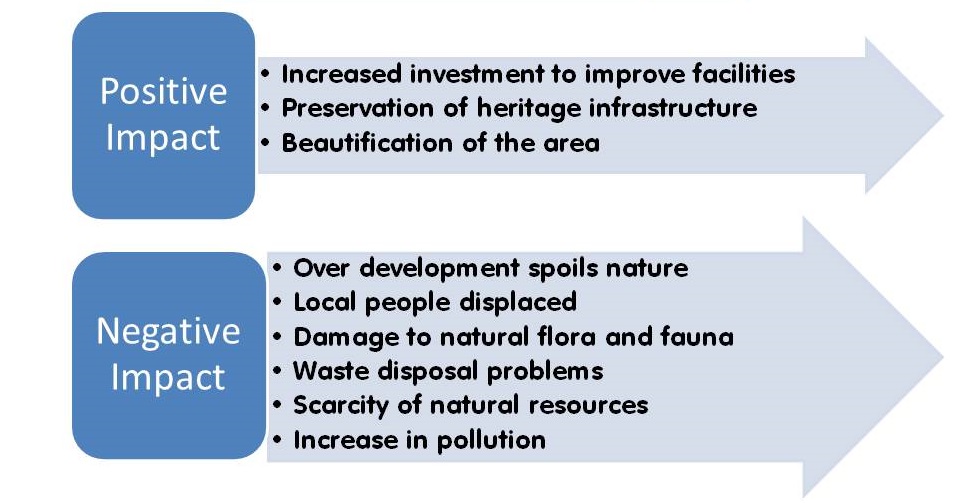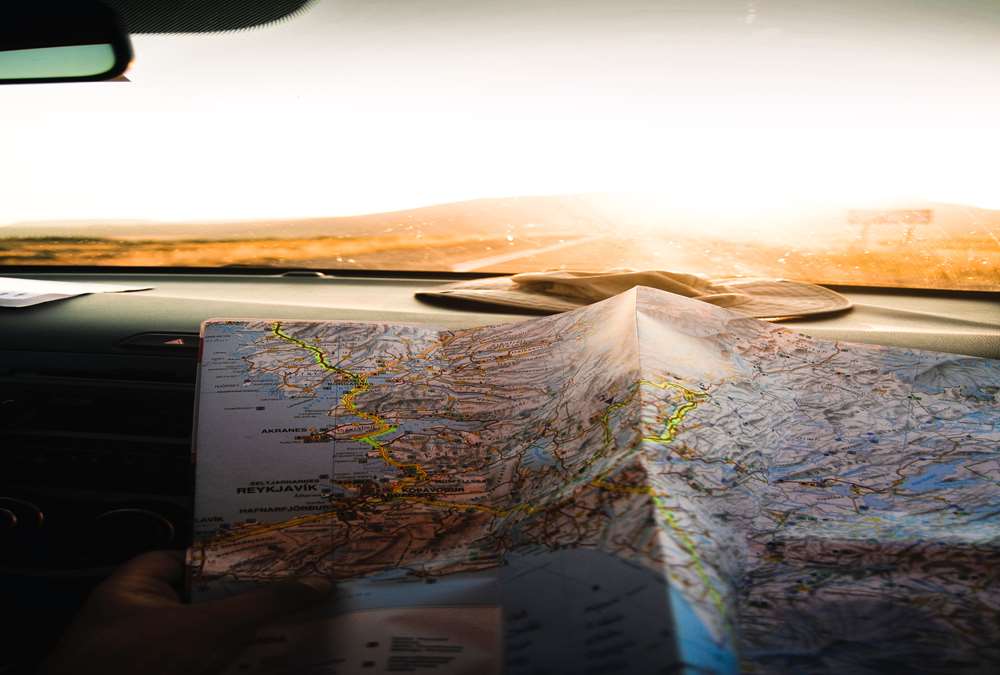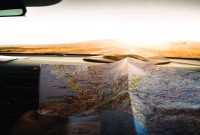- Home
- Business Processes
- Industry Knowledge
- Aerospace Industry
- Automotive Industry
- Banking Domain
- BFSI Industry
- Consumer/ FMCG Industry
- Chemicals Industry
- Engineering & Construction
- Energy Industry
- Education Domain
- Finance Domain
- Hospitality Domain
- Healthcare Industry
- Insurance Domain
- Retail Industry
- Travel and Tourism Domain
- Telecom Industry
- Leadership Skills
- eLearning
- Home
- Domain Knowledge
- Travel Domain
- Environmental Impact of Tourism Industry
Environmental Impact of Tourism Industry
The environment is the surrounding atmosphere or condition for existence. The impact of tourism on the environment is both positive and negative. This article considers the major issue of the consequences of tourism for the environment. This is a complex area as, whilst tourism is dependent upon environmental quality to attract and support visitors, it also can have a detrimental effect upon those very environments – and their climate.
This article is designed to provide you with:
- An understanding of the historical dimensions of tourism and the environment
- An appreciation of both the negative and positive consequences of tourism for the environment;
- An awareness of the broader issues relating to tourism and the environment
Given below are the most critical ecosystems for tourism:
- Coastlines;
- Oceanic islands and marine ecosystems;
- Mountains;
- Polar ecosystems;
- Tropical rainforests
Positive Impact of Tourism on Environment:
In order to attract more tourism special emphasis is given on overall beautification of the surroundings, regular planting of trees and landscaping are done to enhance aesthetics. Huge investment is done to improve the facilities in the area like sitting areas, shades, proper sanitation, drinking water etc. More emphasis is given to preserve the monuments, heritage structures to attract more tourists.
The cause of tourism has been influential in encouraging the conservation of areas of natural beauty and their built heritage. National parks, marine reserves, historic monuments, and archaeological sites all benefit economically from tourism. Tourism also encourages good practice in terms of planning and management and drives the motivation for interpretation and visitor education which in turn helps to protect fragile environments and monuments.
Tourism brings a range of benefits for the built environment, as tourism leaves a valuable legacy in terms of architecture, landscapes, and urban detailing. Tourism also provides the economic lifeblood of resorts and increasingly is seen as a means of supporting new ‘mixed’ developments for both tourists and residents.
Tourism can be a motivation for the rehabilitation of built and natural environments – historic warehouses on the dockside in cities as far apart as Oslo and Yokohama have been saved by converting them into retail and food & beverage outlets for a dominantly tourism-driven market.
Given these successes, tourism can then be used as a persuasive argument for the continued protection of a site if it is threatened. Environmental education of visitors as a way of raising awareness of environmental values has become a major activity in many protected areas and sites of historic interest.

Negative Impact of Tourism on Environment:
Whilst there are many beneficial effects of tourism for the environment, the list of negative consequences is easier to draft and to describe. The scale and significance of environmental impact depend both upon the type of tourism involved and the nature of the resource. New forms of tourism are beginning to introduce new impacts – geo-tourism, for example, is seeing an increase in the collection of minerals and fossils at important geological locations.
Any kind of development requires some interference with nature. Overdevelopment comes at the cost of nature. There may be damage to the natural flora and fauna. Local people are displaced for want of coastal area development. With more people in the area, more natural resources are required which leads to depletion of natural resources. Waste disposal problems crop up and without proper measures to handle this problem, it may worsen the situation. Due to more footfalls, more transport, more noise, improper waste disposal, pollution increases in the area and disturbs the ecological balance of the region.
We can think of climate change as ‘significant changes in long-term average weather patterns, which in turn shifts the climatic characteristic of a region over time to new conditions. It is only in recent decades that the consequences of travel for air quality, and particularly for climate change, have been realized. The additional activity of transportation due to tourism increases carbon emissions with estimates suggesting that tourism accounts for around 5 percent of the world’s total emissions.
Global warming is another consequence, with the accumulation of greenhouse gases in the atmosphere generated by transportation, air conditioning, and other processes, solar radiation is prevented from escaping from the earth and therefore leads to a warming effect. This has consequences for tourism destinations.
Conclusion:
We consider the environment in all its forms and the ecosystems within that environment. There is the need to maintain the integrity of ecosystems as they provide services essential to the survival of humanity, yet we know little about how much stress ecosystems can endure, or how they function. An essential component here is to understand the role of tourism within the ecosystem. We must also recognize that the consequences of tourism for the environment are substantial, but that in fact these consequences are associated with only a small percentage of the world’s population – those that can afford to travel.
Related Links
You May Also Like
-
Components of Tourism Industry
The tourism sector is a range of businesses and organizations involved in delivering the tourism product. All the elements of tourism are related and interact; in essence, the tourism industry is a system of customers and suppliers who demand and supply tourism products and services. In relation to tourism, very often you will come across terms like tourism products and services. These components of travel and tourism can be broadly divided into six key areas highlighted below.
-
Economic Impact of Tourism Industry
The tourism industry has contributed to the economic growth of a country through factors like industrialization, education, advanced technology, a higher number of qualified professionals, opening up of foreign markets, liberal trade policies, and better advertising and strategic marketing. The income generated helps the national balance of payments, earning revenue through direct taxation, as well as from indirect taxes on goods and services purchased by the tourists.
-
How does Tourism Industry impact a country? The impact of the tourism industry can be classified into the social & cultural impact, economic impact, and environmental impact. Social & cultural impact signifies the impact which it creates in terms of social changes. The economic impact can be quantified in terms of monetary benefits and overall economic development of the society. Environmental impact refers to the impact on nature and the surrounding areas.
-
Overview of Hospitality Industry
Hospitality is the act of kindness in welcoming and looking after the basic needs of customers. The hospitality industry is a broad group of businesses that provide services to customers. The industry can be broken down into three basic areas: accommodations, food and beverage, and travel and tourism. Hospitality is actually one facet of the service industry. It primarily involves addressing customer satisfaction and catering to the needs of guests.
-
Wealthy people have always traveled to distant parts of the world, to see great buildings, works of art, learn new languages, and experience new cultures, and to taste different cuisines. There has been an up-trend in tourism over the last few decades and now national or international travel for short breaks is very common. Tourists have a wide range of budgets and tastes, and a wide variety of resorts and hotels have been developed to cater for them.
-
We all travel and have been a tourist, perhaps many times in our life. Tourism and tourist are so common words that they find mention in newspapers and magazines almost on a daily basis. In spite of its popularity, have you ever deliberated what the definition of travel and tourism is? What components constitute the tourism industry? Who qualifies to be called a tourist? Well, this article attempts to explore the words "travel”, “tourism” and "tourist'- both technically as well as conceptually.
-
Challenges in the Tourism Industry
Top challenges confronting tourism are taxation, travel marketing, infrastructure issues, and security and cross border regulations. Too many tourism destinations are not prepared for visitors. Tourists or travelers can at times deem travel marketing to be exaggerated. Another major challenge that the tourism industry faces is the fluctuating rates and cost inflation. New challenges seem to arise quickly impacting the industry as a whole.
-
Environmental Impact of Tourism Industry
The environment is the surrounding atmosphere or condition for existence. The impact of tourism on the environment is both positive and negative. This article considers the major issue of the consequences of tourism for the environment. This is a complex area as, whilst tourism is dependent upon environmental quality to attract and support visitors, it also can have a detrimental effect upon those very environments – and their climate.
-
Social & Cultural Impact of Tourism
Tourism may have different effects on the social and cultural aspects of life in a particular region depending on the strengths of the region. The effect can be positive or negative. Tours also focus on unique natural or geographical features like the coastline, islands, mountains, health resorts, countryside, etc. At such locations, the provision of tourist services and the pressure of tourists are bound to have impacts on the environment, economy, and local social practices and on the people.
Explore Our Free Training Articles or
Sign Up to Start With Our eLearning Courses

About Us
Learning
© 2023 TechnoFunc, All Rights Reserved









